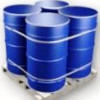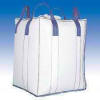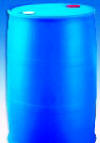Anmol Chemicals is the pioneer manufacturers of Sodium Propyl Paraben or Sodium Propylparaben or Sodium Propyl para-Hydroxybenzoate, Pharmaceutical Excipients Fragrance & Flavor chemicals in India. We offer Halal and Kosher Sodium Propyl Paraben or Sodium Propylparaben or Sodium Propyl para-Hydroxybenzoate made in an ISO9001, ISO22000 (FSSC22000) and cGMP GLP certified facility. Our group has several manufacturing facilities spread across the world, supported by toll manufacturers and representatives in UAE, Europe, Africa, USA, China and has several associated manufacturing facilities spread across India. All the Information on Physics, Chemistry, Applications, Uses and Technology on Manufacture of Sodium Propyl Paraben or Sodium Propylparaben or Sodium Propyl para-Hydroxybenzoate is in these pages. |
| The units have one or more of the certifications like FDA GMP, ISO 9001, ISO 22000, HACCP, REACH, Kosher & Halal |
Sodium Propyl Paraben or Sodium Propylparaben or Sodium Propyl para-Hydroxybenzoate USP NF BP Ph Eur Manufacturers
CAS Number: CAS Number: 35285-69-9, EINECS EC Number: 252-488-1, Molecular Formula: C10H11NaO3, Molecular Weight: 202.18
Sodium propyl p-hydroxybenzoate, the sodium salt of propylparaben, a compound with formula Na(C3H7(C6H4COO)O), is also used as a food additive and as an anti-fungal preservation agent. Its E number is E217.
Sodium Propyl Hydroxybenzoate BP Grade Specifications
Sodium Propylparaben
Sodium Propyl Parahydroxybenzoate, Ph Eur
C10H11NaO3 --- 202.2 --- CAS 35285-69-9
Action and use: Antimicrobial preservative.
DEFINITION
Sodium propyl parahydroxybenzoate contains not less than 99.0 per cent and not more than the equivalent of 104.0 per cent of sodium 4-(propoxycarbonyl)phenolate, calculated with reference to the anhydrous substance.
CHARACTERS
A white or almost white, crystalline powder, freely soluble in water, sparingly soluble in alcohol, practically insoluble in methylene chloride.
IDENTIFICATION
First identification A, B, E.
Second identification A, C, D, E.
A. Dissolve 0.5 g in 50 ml of water. Immediately add 5 ml of hydrochloric acid. Filter, and wash the precipitate with water. Dry at 80C in vacuo for 2 h. The melting point of the precipitate is 96C to 99C.
B. Examine the precipitate obtained in identification test A by infrared absorption spectrophotometry, comparing with the spectrum obtained with propyl parahydroxybenzoate CRS.
C. Examine the chromatograms obtained in the test for related substances. The principal spot in the chromatogram obtained with test solution (b) is similar in position and size to the principal spot in the chromatogram obtained with reference solution (c).
D. To about 10 mg in a test-tube add 1 ml of sodium carbonate solution, boil for 30 s and cool. Add 5 ml of aminopyrazolone solution and 1 ml of potassium ferricyanide solution and mix. An orange to red colour develops.
E. To 1 ml of solution S (see Tests) add 1 ml of water. The solution gives reaction (a) of sodium.
TESTS
Solution S: Dissolve 5.0 g in carbon dioxide-free water prepared from distilled water, and dilute to 50 ml with the same solvent.
Appearance of solution: Solution S, examined immediately after preparation, is clear and not more intensely coloured than reference solution.
pH: Dilute 1 ml of solution S to 100 ml with carbon dioxide-free water. The pH of the solution is 9.5 to 10.5.
Related substances: To pass the test.
Chlorides: To 10 ml of solution S add 30 ml of water and 1 ml of nitric acid and dilute to 50 ml with water. Shake and filter. Dilute 10 ml of the filtrate to 15 ml with water. The solution complies with the limit test for chlorides (350 ppm). Prepare the standard using 14 ml of chloride standard solution (5 ppm Cl) to which 1 ml of water has been added.
Sulphates: To 25 ml of solution S add 5 ml of distilled water and 10 ml of hydrochloric acid and dilute to 50 ml with distilled water. Shake and filter. Dilute 10 ml of the filtrate to 15 ml with distilled water. The solution complies with the limit test for sulphates (300 ppm).
Heavy metals: 2.0 g complies with limit test C for heavy metals (10 ppm). Prepare the standard using 2 ml of lead standard solution (10 ppm Pb).
Water: Not more than 5.0 per cent, determined on 0.500 g by the semi-micro determination of water.
ASSAY
Dissolve 0.150 g in 50 ml of anhydrous acetic acid. Titrate with 0.1 M perchloric acid, determining the end-point potentiometrically. 1 ml of 0.1 M perchloric acid is equivalent to 20.22 mg of C10H11NaO3.
IMPURITIES
A. R = H: 4-hydroxybenzoic acid,
B. R = CH3 : methyl 4-hydroxybenzoate,
C. R = CH2-CH3: ethyl 4-hydroxybenzoate,
D. R = CH2-CH2-CH2-CH3: butyl 4-hydroxybenzoate.
Propylparaben Sodium USP NF Grade Specifications
Propylparaben Sodium contains not less than 98.5 percent and not more than 101.5 percent of C10H11NaO3, calculated on the anhydrous basis.
Completeness of solution: One g of it, dissolved in water, meets the requirement.
Identification:
A: Dissolve 0.5 g in 5 mL of water, acidify with hydrochloric acid, and filter the resulting precipitate. Wash the precipitate with water, and dry it over silica gel for 5 hours: the IR absorption spectrum of a mineral oil dispersion of it exhibits maxima only at the same wavelengths as that of a similar preparation of USP Propylparaben.
B: Ignite about 0.3 g, cool, and dissolve the residue in about 3 mL of 3 N hydrochloric acid. A platinum wire dipped in this solution imparts an intense, persistent yellow color to a nonluminous flame.
pH: between 9.5 and 10.5, in a solution (1 in 1000).
Water: not more than 5.0%.
Chloride: A 0.2-g portion shows no more chloride than corresponds to 0.10 mL of 0.020 N hydrochloric acid (0.035%).
Sulfate: A 0.25-g portion shows no more sulfate than corresponds to 0.30 mL of 0.020 N sulfuric acid (0.12%).
Sodium Propyl Paraben or Sodium Propylparaben or Sodium Propyl para-Hydroxybenzoate USP NF BP Ph Eur manufacturers at:
Anmol Chemicals
S-8, SARIFA MANSION, 2ND FLANK ROAD, CHINCHBUNDER, MUMBAI 400009, INDIA
TEL: (OFFICE) 91-22-23770100, 23726950, 23774610, 23723564. FAX: 91-22-23728264
e-mail: ask(at the rate @)anmol.org

Exports to USA, Canada, UAE, Dubai, South Africa, Tanzania, Kenya, Nigeria, Egypt, Uganda, Turkey, Mexico, Brazil, Chile, Argentina, Europe Netherlands, Italy, Spain, Germany, Portugal, France, Malaysia, Indonesia, Thailand, Russia, Korea, Japan, etc.
Copyright and Usual Disclaimer is Applicable. 19 August, 2025




